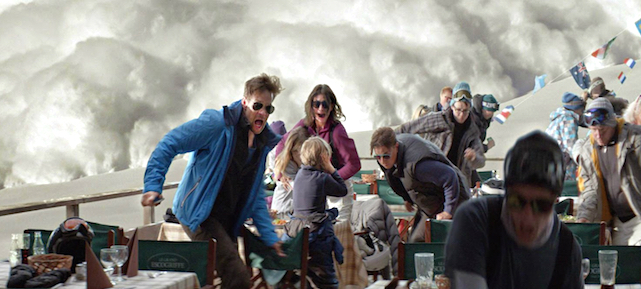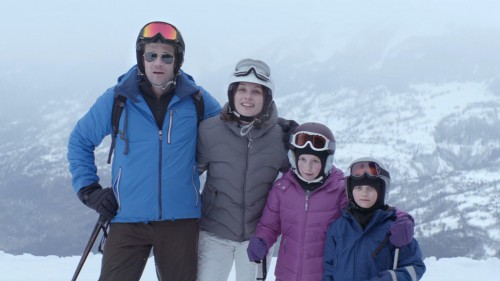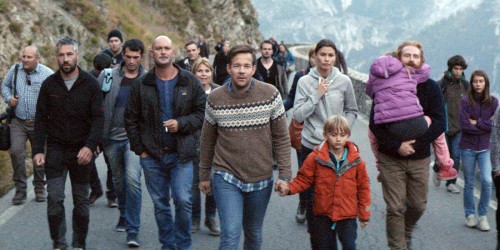
Nearly a year ago, NPR released an article entitled The New American Man Doesn’t Look Like His Father where they examined the shift in American masculinity over the past fifty years. There were, of course, both positive and negative findings. For example, postmodern boys and young men have an increased respect for gender equality, but they also are far more likely to dropout of college or choose not to attend at all. A far more alarming, but not entirely surprising, section in the write-up comes in a quote from Stony Brook University sociologist and director of the Center for the Study of Men and Masculinities, Michael Kimmel on what has not changed in àpropos American masculinity:
“Survey after survey shows that 60 to 70 percent of men still agree with the notion that masculinity depends on emotional stoicism – never showing fear, never showing pain. So the world has changed dramatically, and yet most men still cling to an ideology of masculinity that comes off the set of Mad Men.”
Perhaps Kimmel is implying that said emotional stoicism is a constricting and not liberating formula for men, one that is unable to absolve the not-so-masculine condition of most men, myself included: we are afraid and we are hurt. Swedish filmmaker Ruben Östlund’s acumen of this masculine paradox is what makes his most recent feature, Force Majeure (meaning “irresistible force”), our newest Mining Netflix headliner.
A quick glance at Force Majeure’s cover would lead anyone to assume the film’s conflict lives in the snow: an avalanche tumbling down the slopes, wrecking havoc on innocent vacationers. However, the snow is quite innocuous in Force’s narrative. It exists solely as a metaphorical accessory used to strip Östlund’s characters, a Swedish family on holiday in the French Alps, down to their raw selves. Östlund wastes no time defanging the snow early on in Force.
In an early scene, Parents Tomas and Ebba along with their two children Harry and Vera grab lunch on a mountainside terrace. Only seconds after being served their lunch, a large boom sounds in the distance. Snow begins to plunge down a neighboring mountain. Frightened, Ebba and the children look to Tomas for an explanation, and he assures them that it’s a controlled avalanche and that everything will be fine. He points his iPhone to the mountain to capture the event, but with each passing second the wall of snow grows more massive, and Tomas’ family begin to doubt his promise of safety. In the echoes of his family’s screams, Tomas accepts the horror that everything may in fact not be fine. He frantically sprints out of the shot, clutching his iPhone and leaving his family stuck in the tracks of the avalanche. It hits. The picture goes gray as harrowing shrieks of terrace patrons pierce through snow’s forceful boom. But gradually the snowy mist dissipates, and everyone seems OK. It was a controlled avalanche, and Ebba, Harry, and Vera are safe. As the haze clears, Tomas walks back into the shot, chuckling at the ordeal’s absurdity, but his humor fails to land with Ebba and the children. Still trembling and confused, they finish their lunch in silence, aware but not willing to acknowledge Tomas’ sin.
 A few scenes later, while eating out with another couple, Tomas recounts their avalanche encounter claiming that while the avalanche had rattled Ebba and the children, he had been, all things considered, “okay”. Infuriated by Tomas’ defensive deception, Ebba calls BS: “He got so scared that he ran away from the table,” she interrupts him. Tomas’ delusion is more horrific than the stampeding snow. He insists that he did not abandon his wife and children and suggests that he remained with them throughout the incident. “Tomas, you ran away from me and the kids,” Ebba responds again matter-of-factly, yet his mind remains in an alternate reality. Tomas and Ebba argue their way through much of the film’s second act. With each interaction, Tomas’ grip seems to tighten around his handcrafted perception.
A few scenes later, while eating out with another couple, Tomas recounts their avalanche encounter claiming that while the avalanche had rattled Ebba and the children, he had been, all things considered, “okay”. Infuriated by Tomas’ defensive deception, Ebba calls BS: “He got so scared that he ran away from the table,” she interrupts him. Tomas’ delusion is more horrific than the stampeding snow. He insists that he did not abandon his wife and children and suggests that he remained with them throughout the incident. “Tomas, you ran away from me and the kids,” Ebba responds again matter-of-factly, yet his mind remains in an alternate reality. Tomas and Ebba argue their way through much of the film’s second act. With each interaction, Tomas’ grip seems to tighten around his handcrafted perception.
The family’s outward appearance is notable and worth dissecting to shed further light on their conflict. Tomas looks like a Marvel superhero. He’s got the close-cropped haircut and piercing blue eyes. Ebba has free-flowing brown hair; she’s slim and moves gracefully with a smile that will melt your heart. Their children are both cute and healthy. Beautiful actors certainly make for a more enticing film, but Force’s cast was undoubtedly built with more in mind. Their perfect exterior creates the veneer of a perfect family, but even before the avalanche debacle, it is clear that they are sailing a sinking ship. In one of Force’s first scenes, they family poses for portrait on the slopes, but the photographer has to constantly readjust their positioning so that they seem more intimate than they are. The family’s outward façade is about as genuine as the controlled avalanche was dangerous. Tomas and Ebba’s physical traits reflect the dynamism of their emotional progression as well. So long as Tomas holds fast to his lies, his outward attributes remain the in tact. Reversely, Ebba’s exterior slowly deteriorates with each passing day. She develops bags underneath her eyes, her hair becomes frizzy, and she even appears to develop more wrinkles on her face. Tomas’ self-preservation is destroying his wife.

Östlund and Cinematographer Fredrik Wenzel use the camera tactfully to force the audience to empathize with film’s characters. The camera remains locked on a tripod, never using much more than a slow zoom as far as camera movement goes, for most of the film. A shot may start out properly framed, but can quickly become a bit of a mess. This constraint of framing paired with the amplified sounds in Force creates an imprisoning effect for its audience. While the characters may move in and out, from top to bottom of the frame, we have no choice but to stay in the same rectangle. For example, in the pivotal avalanche scene the camera never moves and Östlund never cuts to a different shot. When Tomas abandons his family, there is no telling to where he runs to, or if he’s even coming back. This restricted vision often leaves us feeling hopelessly paralyzed in what we are given, just as Ebba must reluctantly live in the reality her husband refuses to let go of.
(Spoilers ahead)
As Force moved into its third act, its aggregating pressure was almost too much to handle, but at the perfect moment of heightened tension Tomas explodes. He confesses nearly every sin he has ever committed in his marriage, lying and being unfaithful among the many. He weeps with such hysterical intensity that I honestly wondered if Östlund wanted his audience to laugh at Tomas. Though, at the same time, the sight of Tomas in shambles was deeply profound. Now a broken, pitiful mess, Tomas finally appears free. Through his confession, Tomas paves the way for Force’s finale.
The family boards a bus to begin their journey home, but the driver is inexperienced in descending down windy, snow-covered mountain roads. Not good. Many of the passengers are fearful that he may drive them right off the mountain. Ebba being one of them, eventually forces her way off the bus with many of the other passengers following behind her. Our family is now confronted with a situation similar to the avalanche scene, except this time it is the source of the fear, the bus driver, who has abandoned them, not Tomas. The group begins walking down the mountain road, and Tomas gradually moves from the back of the pack to the front. In contrast to earlier scenes, Östlund finally allows the camera to pan, correctly framing Tomas front and center in the shot. A man approaches Tomas and asks him if he would like a cigarette. After initially declining, Tomas takes it. Harry, who is holding his father’s hand, asks, “Do you smoke, Daddy?” Tomas responds, “Yes, I do.” Tomas’ newfound vulnerability has relinquished him from the shame of his vices. He is liberated, and now, as he leads the group down the mountain, is able to liberate others, his family included.

The bottomless grace Tomas received from his family seems farfetched. Ebba willingly follows Tomas. She still loves him, even after his confessions. Harry doesn’t bat an eye when he looks upon his Tomas smoking a cigarette. He just continues to grasp tightly to his father’s hand. Tomas’ admittance of weakness has made him more accessible to his family, and instead of further shaming Tomas, they welcome him back. Counselor Dr. James Coffield wrote this in a recent article on shame:
A person engulfed in shame will focus on self; they will isolate and blame others for their situation. Shame ultimately creates a relational style for avoidance. We want to avoid being found out to prevent our darkest places from being discovered.
In his shame, Tomas was alone, but in the uncovering of his darkest places, an unreasonable amount of love and acceptance provided Tomas with an illuminated renewal of life. Here and only here, Tomas shed his masculine, emotional stoicism and found rest in a place where there truly is no condemnation.

COMMENTS
One response to “Mining Netflix: Masculinity Surrenders to a Force Majeure”
Leave a Reply














Great review! I loved this film and this post shares cool insights that I hadn’t thought about.